Russia claims to fire warning shots at UK destroyer… But did they?
- By Alex Hollings
Share This Article
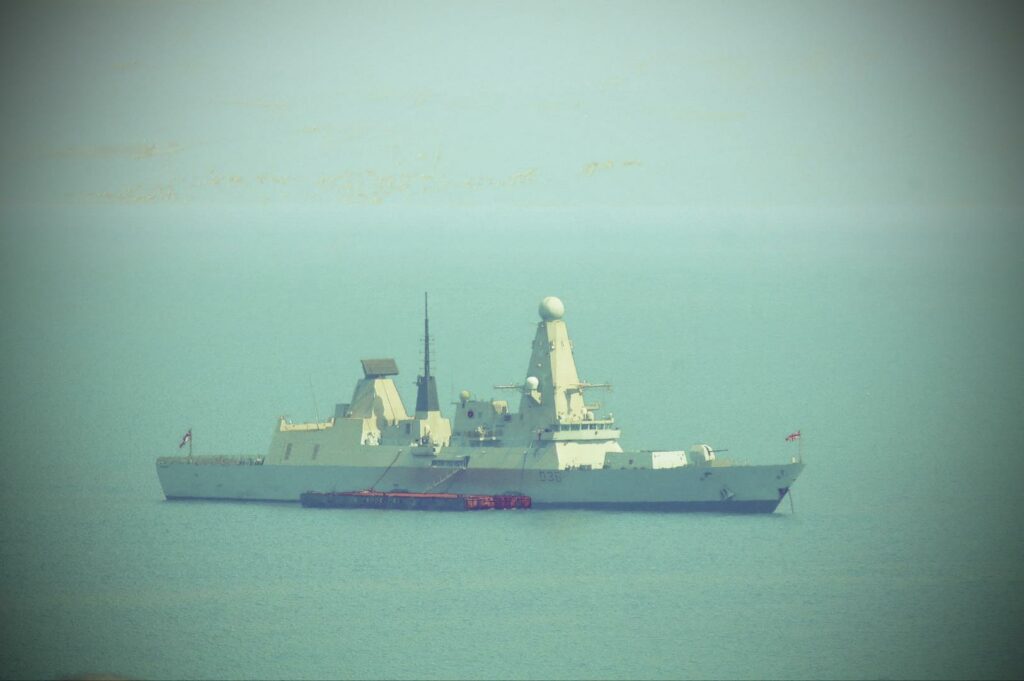
On Tuesday, Russia announced that its Navy fired warning shots and even dropped bombs in the path of an encroaching British destroyer sailing through the Black Sea. If true, this would mark the first time Russian troops have fired live ammunition to deter a NATO vessel in decades.
“The destroyer had been warned that weapons would be used if it trespasses the border of the Russian Federation. It did not react to the warning,” Russia’s Ministry of Defense said in a written statement.
This supposed provocation between Russia and NATO nations in the region seems awfully serious, but interestingly, the British Ministry of Defense has denied that the incident took place at all.
“We believe the Russians were undertaking a gunnery exercise in the Black Sea and provided the maritime community with prior-warning of their activity,” the Defense Ministry said in a statement on Twitter.
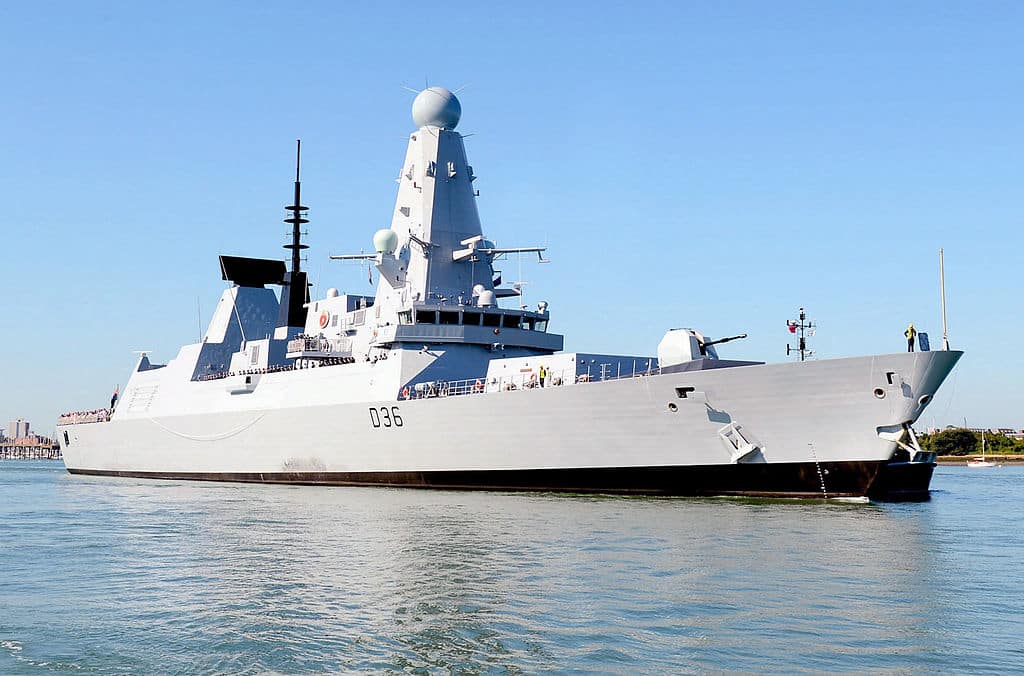
Related: IS RUSSIA’S SU-57 THE WORST STEALTH FIGHTER ON THE PLANET?
According to Russian officials, the HMS Defender, a Type 45 destroyer, was given notice that it was illegally entering Russian waters. If this did occur, it’s likely the Brits ignored the Russian warnings, as they were transmitted from the Crimean peninsula; a territory Russia militarily annexed from Ukraine in 2014. The U.K., like most of the world, does not recognize Crimea as a Russian territory.
Per the Russian account of events, the Defender continued on its course, undeterred by Russian warnings. At that point, a Sukhoi Su-24 Fencer, a variable sweep-wing ground attack aircraft developed at the height of the Cold War, flew over the Defender and dropped four high explosive fragmentation bombs in its path. With the Royal Navy still undeterred, a nearby Russian warship then opened fire with an onboard weapon system, delivering warning shots in the vicinity of the British warship. Per the Russian account, it was shortly after this volley of fire that the Defender changed course and scurried out of the area.
But according to British officials, the Russian Navy was conducting pre-announced gunnery exercises in the Black Sea as they transited, and didn’t interact with the Defender at all. What gives?
Why would anyone lie about warning shots?
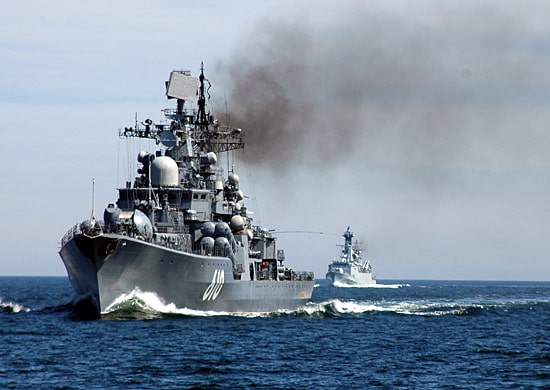
It’s essential to remember that the perpetual posturing between Russia and its NATO opposition from the West is as much about appearance as it is about deterrence. Russia no longer possesses the economic might it would need to resort to open war with the United States, let alone the entirety of the NATO alliance, but because of the nation’s nuclear arsenal and broad military capabilities, war would be a bad deal for NATO as well. Instead, these powerful groups often resort to covert operations against one another in the grey zone, and of course, duking it out in the arena of public perception.
Portraying the opposition as the offending party or the aggressor sometimes paints the accuser in a more positive light, as we saw Russia, China, and North Korea work toward in recent years amid the Trump administration’s efforts to pressure Kim Jong Un’s North Korean regime into relinquishing their pursuit of nuclear weapons.
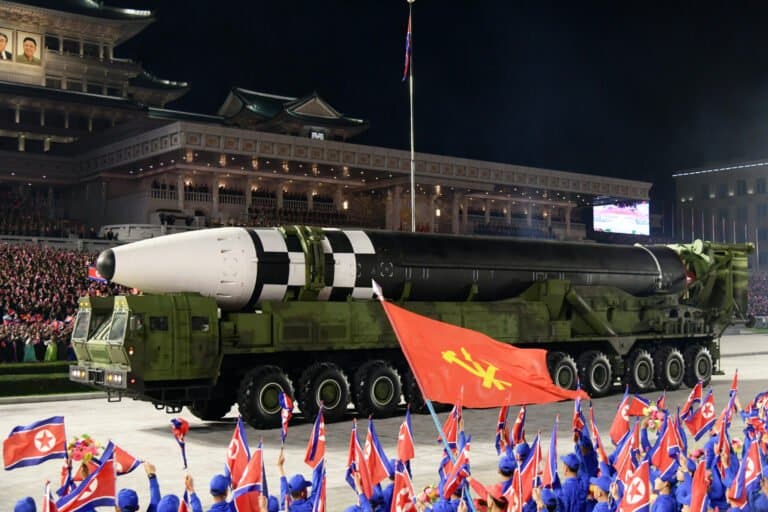
Related: SHOULD WE BE AFRAID OF NORTH KOREA’S MASSIVE NEW ICBM?
In this instance, Russia could feasibly be looking to normalize the concept of Crimea being a Russian territory in the minds of the world, presenting this interaction as though the British were aggressively violating Russian sovereignty, rather than the Brits failing to recognize Russia’s invasion of Ukraine as legally legitimate.
In other words, Russia’s state-owned media may have approached the world with a story about Russia being the victim of Western aggression, despite the broader context of the situation clearly positioning Russia as the aggressor.
Russia’s long-running “Western Conspiracy” defense

Russia has long understood the value of controlling public perception, and as such, has included education in a uniquely Soviet approach to manipulation in both enlisted and official training syllabuses known as “reflexive control.” While this approach can be levied in a diverse array of ways, the underlying principle remains the same: it “conveys to an opponent specifically prepared information to incline him/her to voluntarily make the predetermined decision desired by the initiator of the action.”
Part of this approach includes constantly maintaining two contradictory images of the Russian Ministry of Defense and the nation’s intelligence apparatus. In headlines and before U.N. assemblies, Russia constantly presents itself as the defiant victim of what they commonly refer to as an “anti-Russian conspiracy” aimed at ruining the nation’s reputation. Outside of those realms, Russia works to convey the image of a dangerous and powerful enemy deserving of the world’s fear.
Related: RUSSIA’S HIGH PROFILE WEAPONS ARE ALL SMOKE AND MIRRORS
However, this Russian facade runs counter to the actions of Russian agents, military personnel, and third party contractors employed by the Russian government. Each time Russia is caught red-handed attempting to conduct assassinations on foreign soil, trying to mislead the American people about U.S. troop activities in Syria, violating the terms of longstanding international agreements, or even cheating at the Olympics, Russia responds by refusing to take responsibility and offering a convoluted explanation for why they’re the real victims here.
For instance, this is how the Russian government responded to the World Anti-Doping Agency’s independent Compliance Review Committee (CRC) accusing Russian athletes and coaches of widespread use of performance-enhancing drugs:
“There are those who want to put Russia in the position of being on the defensive, in the position of the accused,” Russian Foreign Minister Sergey Lavrov said in 2019.
“Moreover, the accused in everything and everywhere, whatever area of international life you take: conflicts, the economy, energy, gas pipelines, trade in military products — everywhere Russia violates something or does something that is disadvantageous to one or several Western countries.”
Lavrov didn’t deny the use of those drugs, he instead suggested that Russia was somehow being victimized by being barred from competition for using them.
Russia dusted off the very same argument when accused of sending covert agents to assassinate a former Russian intelligence officer turned MI6 informant, Sergei Skripal, in Salisbury, England in March of 2018. Two Russian agents were implicated in the attack and, perhaps most tellingly, the weapon used was a Cold War-era nerve agent developed only by the Soviet Union called Novichok. Its use, many believe, was intended as a message for the Cold War turncoat Skripal and any others like him.
“The speed at which the anti-Russian campaign was launched causes bewilderment,” Putin said when the attack came to light.
It’s “anti-Russian hysteria,” proclaimed Russian Ambassador Vassily Nebenzia at the U.N.
Of course, just six months later, Russian spies were caught breaking into the Swiss lab that held evidence linking the Skripal assassination attempt to the Russian government.
The list of examples of Russia presenting themselves as the victim of Western aggression extends from the smallest diplomatic spats to sizeable Russian forces engaging U.S. special operations troops in open combat in places like Syria.
And, it’s important to note, this approach is working. According to a 2018 poll reported on by the Moscow Times, a whopping 66% of Russians polled agreed with the statement that “there is a group of people who seek to rewrite Russian history and replace the historical fact in order to hurt Russia and diminish its greatness.”
So did this interaction between the Russian and Royal Navies even take place?
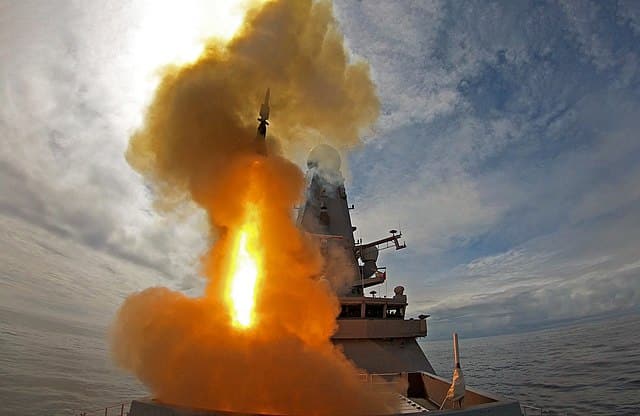
Related: HERE’S WHY US FIGHTERS AND RUSSIAN BOMBERS KEEP SQUARING OFF NEAR ALASKA
Update: Footage from the incident has surfaced that seems to confirm the British accounting of events.
Russian military video from @HMSDefender transit earlier today lines up with @DefenceHQPress account of no warning shots, bombs. However, lots of fighter traffic near the destroyer during the transit. https://t.co/dgjRzeQObR
— Sam LaGrone (@samlagrone) June 23, 2021
Previous reporting continues:
Chances are good that something like it did. Whether or not the Russians were as overtly defensive as they claim or the British were as undeterred by the clear use of live ordnance in their path may well end up the subject of debate between respective parties for years to come, but the truth is, what really happened doesn’t matter nearly as much as how public perception shakes out. Even if one party is proven to have been lying, that lie will ultimately just inform the continued debate.
Further complicating matters, the HMS Defender was one of two NATO warships, alongside the Royal Netherlands Navy’s HNLMS Evertsen, a De Zeven Provinciën-class frigate, to apparently spoof tracking data while traversing the Black Sea in recent weeks. According to USNI, these two warships sailed to within just two nautical miles of Sevastopol, the port that houses the headquarters of Russia’s Black Sea fleet, on June 18th… or at least that’s what their automatic identification system (AIS) transponders showed. In reality, both ships could clearly be seen docked in Odessa, some 180 miles away.
In the weeks to come, posturing statements will be thrown about between government officials on both sides, news stories will break regarding specific elements of the interaction, and then this story will slip beneath the ever rising tide of breaking news. When that happens, all that will be left in much of the public consciousness is either another example of Russia taking aggressive action and then publicly back-peddling, or another example of the Western powers trying to smear Putin’s peaceful and even-keeled regime.
Because the truth and popularly accepted narratives don’t always overlap, it’s up to us to choose what seems most likely.
Related Posts
Sandboxx News Merch
-

F-35 ‘Lightning’ Poster
$22.00 – $28.00 Select options This product has multiple variants. The options may be chosen on the product page -

F-35 ‘Evolution’ Poster
$22.00 – $28.00 Select options This product has multiple variants. The options may be chosen on the product page -

F-35 ‘Evolution’ Framed Poster
$45.00 – $111.00 Select options This product has multiple variants. The options may be chosen on the product page

Alex Hollings
Alex Hollings is a writer, dad, and Marine veteran.
Related to: Breaking News
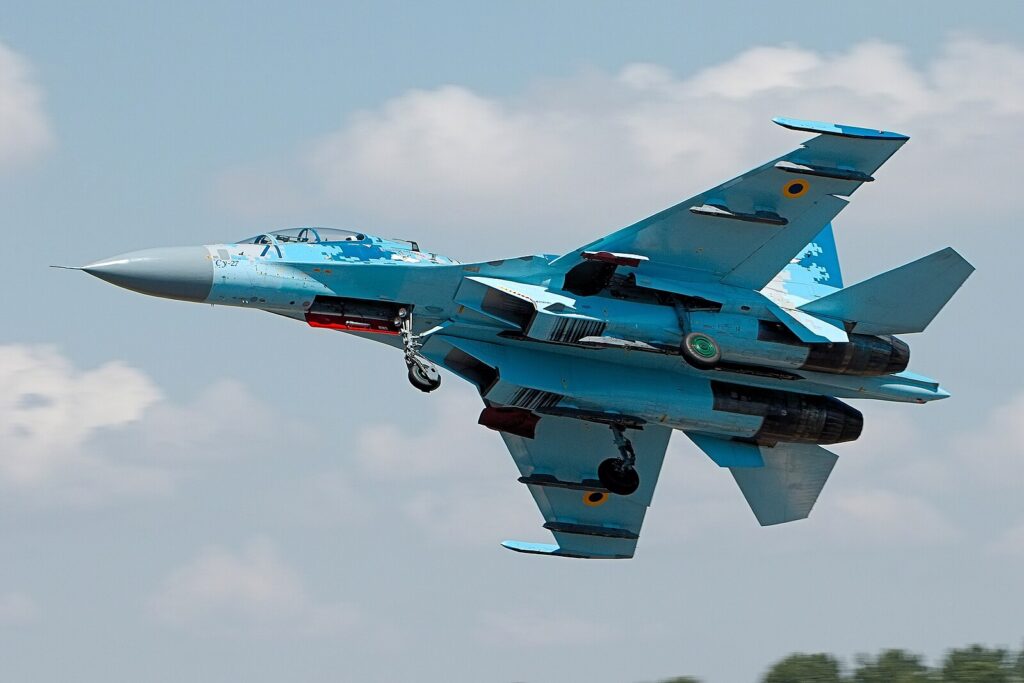
Where do NATO reporting names come from?

The A-12 Avenger II would’ve been America’s first real ‘stealth fighter’
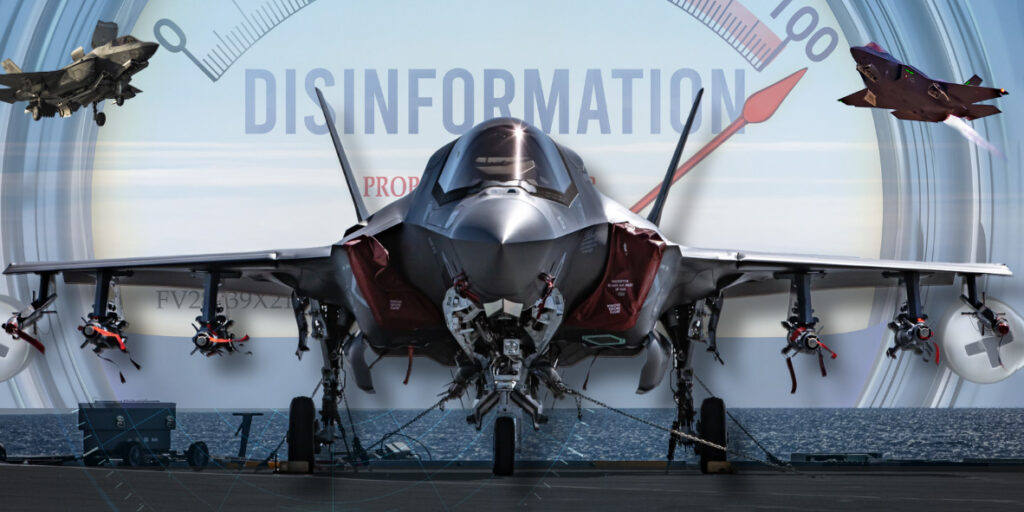
Why media coverage of the F-35 repeatedly misses the mark
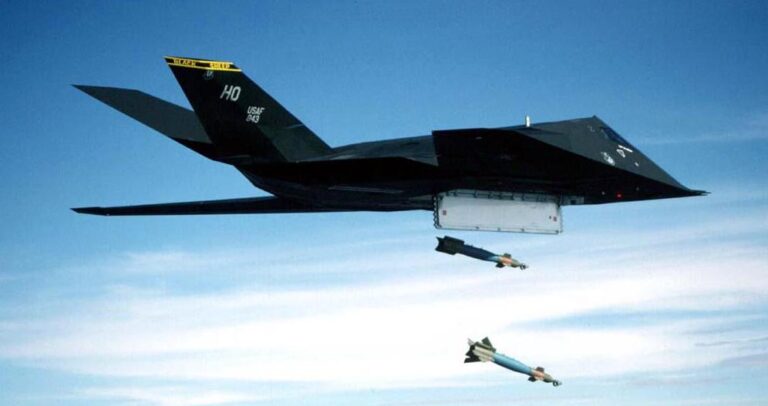
It took more than stealth to make the F-117 Nighthawk a combat legend
Sandboxx News
-

‘Sandboxx News’ Trucker Cap
$27.00 Select options This product has multiple variants. The options may be chosen on the product page -

‘AirPower’ Classic Hoodie
$46.00 – $48.00 Select options This product has multiple variants. The options may be chosen on the product page -

‘AirPower’ Golf Rope Hat
$31.00 Select options This product has multiple variants. The options may be chosen on the product page -

‘Sandboxx News’ Dad Hat
$27.00 Select options This product has multiple variants. The options may be chosen on the product page
